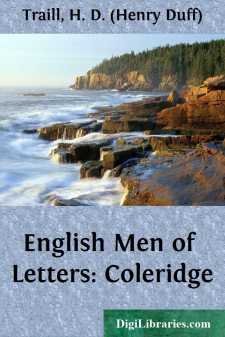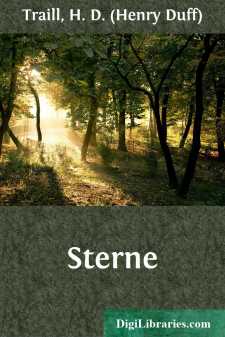Categories
- Antiques & Collectibles 13
- Architecture 36
- Art 48
- Bibles 22
- Biography & Autobiography 813
- Body, Mind & Spirit 142
- Business & Economics 28
- Children's Books 14
- Children's Fiction 11
- Computers 4
- Cooking 94
- Crafts & Hobbies 4
- Drama 346
- Education 46
- Family & Relationships 57
- Fiction 11829
- Games 19
- Gardening 17
- Health & Fitness 34
- History 1377
- House & Home 1
- Humor 147
- Juvenile Fiction 1873
- Juvenile Nonfiction 202
- Language Arts & Disciplines 88
- Law 16
- Literary Collections 686
- Literary Criticism 179
- Mathematics 13
- Medical 41
- Music 40
- Nature 179
- Non-Classifiable 1768
- Performing Arts 7
- Periodicals 1453
- Philosophy 64
- Photography 2
- Poetry 896
- Political Science 203
- Psychology 42
- Reference 154
- Religion 513
- Science 126
- Self-Help 84
- Social Science 81
- Sports & Recreation 34
- Study Aids 3
- Technology & Engineering 59
- Transportation 23
- Travel 463
- True Crime 29
English Men of Letters: Coleridge
Description:
Excerpt
Chapter I
Birth, parentage, and early years – Christ's Hospital – Jesus College, Cambridge.[1772-1794.]
On the 21st of October 1772 there was added to that roll of famous Englishmen of whom Devonshire boasts the parentage a new and not its least illustrious name. Samuel Taylor Coleridge was the son of the Rev. John Coleridge, vicar of Ottery St. Mary in that county, and head master of Henry VIII.'s Free Grammar School in the same town. He was the youngest child of a large family. To the vicar, who had been twice married, his first wife had borne three children, and his second ten. Of these latter, however, one son died in infancy; four others, together with the only daughter of the family, passed away before Samuel had attained his majority; and thus only three of his brothers, James, Edward, and George Coleridge, outlived the eighteenth century. The first of these three survivors became the father of Henry Nelson Coleridge – who married his cousin Sara, the poet's accomplished daughter, and edited his uncle's posthumous works – and of the late Mr. Justice Coleridge, himself the father of the present Lord Chief-Justice of England. Edward, the second of the three, went, like his eldest brother William, to Pembroke College, Oxford, and like him took orders; and George, also educated at the same college and for the same profession, succeeded eventually to his father's benefice and school. The vicar himself appears from all accounts to have been a man of more mark than most rural incumbents, and probably than a good many schoolmasters of his day. He was a Hebrew scholar of some eminence, and the compiler of a Latin grammar, in which, among other innovations designed to simplify the study of the language for "boys just initiated," he proposed to substitute for the name of "ablative" that of "quale-quare-quidditive case." The mixture of amiable simplicity and not unamiable pedantry to which this stroke of nomenclature testifies was further illustrated in his practice of diversifying his sermons to his village flock with Hebrew quotations, which he always commended to their attention as "the immediate language of the Holy Ghost" – a practice which exposed his successor, himself a learned man, to the complaint of his rustic parishioners, that for all his erudition no "immediate language of the Holy Ghost" was ever to be heard from him. On the whole the Rev. John Coleridge appears to have been a gentle and kindly eccentric, whose combination of qualities may have well entitled him to be compared, as his famous son was wont in after-life to compare him, to Parson Adams.
Of the poet's mother we know little; but it is to be gathered from such information as has come to us through Mr. Gillman from Coleridge himself that, though reputed to have been a "woman of strong mind," she exercised less influence on the formation of her son's mind and character than has frequently been the case with the not remarkable mothers of remarkable men. "She was," says Mr. Gillman, "an uneducated woman, industriously attentive to her household duties, and devoted to the care of her husband and family....



